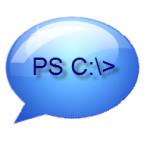 One of the best things about PowerShell 3.0, for me anyway, is the ability to run PowerShell 2.0 side by side. I often need to test commands and scripts in both versions not only for my writing projects but also when helping people out. Like many of you I have a PowerShell profile script that configures my console. And because I primarily use PowerShell 3.0 I tend to have a number of version specific commands in my profile. The problem is that when I launch a PowerShell 2.0 session it uses the same profile, resulting in error messages for things it can't do. So this is how I handle having a single profile that can be used by two different versions of PowerShell.
One of the best things about PowerShell 3.0, for me anyway, is the ability to run PowerShell 2.0 side by side. I often need to test commands and scripts in both versions not only for my writing projects but also when helping people out. Like many of you I have a PowerShell profile script that configures my console. And because I primarily use PowerShell 3.0 I tend to have a number of version specific commands in my profile. The problem is that when I launch a PowerShell 2.0 session it uses the same profile, resulting in error messages for things it can't do. So this is how I handle having a single profile that can be used by two different versions of PowerShell.
ManageEngine ADManager Plus - Download Free Trial
Exclusive offer on ADManager Plus for US and UK regions. Claim now!
Basically, my profile script checks the version first, before doing anything. You can use the $psversiontable variable.
PS C:\> $PSVersionTable
Name Value
---- -----
PSVersion 3.0
WSManStackVersion 3.0
SerializationVersion 1.1.0.1
CLRVersion 4.0.30319.18033
BuildVersion 6.2.9200.16434
PSCompatibleVersions {1.0, 2.0, 3.0}
PSRemotingProtocolVersion 2.2
The PSVersion property is what I'm looking for. With this information, I can wrap my PowerShell profile script in simple IF statement.
#requires -version 2.0
<#
Use code like this in your PowerShell profile if it will
be shared between PowerShell 2 and PowerShell 3 sessions
on the same computer
#>
if ($psversiontable.psversion -eq '3.0') {
Write-Host "You are running PowerShell 3.0" -ForegroundColor Green
#insert 3.0 specific commands
$PSDefaultParameterValues.Add("Format-Table:Autosize",$True)
}
else {
Write-Host "You are running PowerShell 2.0" -ForegroundColor Yellow
#insert 2.0 specific commands
}
#insert commands that apply to both versions
I think the comments in the code sample are pretty clear and there's really not much else to add. The Write-Host lines are merely for testing. You don't really need them.
Now I can get properly configured PowerShell sessions regardless of version and without errors.

This is great, though personally I am not doing anything in my profile that would need this other than pre-loading a vendor’s module/snapin. Is there anything you are doing that takes advantage of this? I am really curious about what people do to make their profiles better.
Yes I do. I use the new PSDefaultParameterValues feature. I also load some functions that use 3.0 specific features like ordered hashtables.